The Last Place
Youd Look
The Last Place
Youd Look
True Stories of Missing Persons and
the People Who Search for Them
Carole Moore
ROWMAN & LITTLEFIELD PUBLISHERS, INC.
Lanham Boulder New York Toronto Plymouth, UK
Published by Rowman & Littlefield Publishers, Inc.
A wholly owned subsidiary of The Rowman & Littlefield Publishing Group, Inc.
4501 Forbes Boulevard, Suite 200, Lanham, Maryland 20706
http://www.rowmanlittlefield.com
Estover Road, Plymouth PL6 7PY, United Kingdom
Copyright 2011 by Rowman & Littlefield Publishers, Inc.
All rights reserved. No part of this book may be reproduced in any form or by any electronic or mechanical means, including information storage and retrieval systems, without written permission from the publisher, except by a reviewer who may quote passages in a review.
British Library Cataloguing in Publication Information Available
Library of Congress Cataloging-in-Publication Data
Moore, Carole, 1951
The last place youd look : true stories of missing persons and the people who search for them / Carole Moore.
p. cm.
Includes bibliographical references and index.
ISBN 978-1-4422-0368-6 (cloth : alk. paper) ISBN 978-1-4422-0370-9 (electronic)
1. Missing personsUnited StatesCase studies. 2. Missing childrenUnited StatesCase studies. 3. Missing personsInvestigationUnited StatesCase studies. I. Title.
HV6762.U5M65 2011
363.2'3360973dc22 2010043445
 The paper used in this publication meets the minimum requirements of American National Standard for Information SciencesPermanence of Paper for Printed Library Materials, ANSI/NISO Z39.48-1992.
The paper used in this publication meets the minimum requirements of American National Standard for Information SciencesPermanence of Paper for Printed Library Materials, ANSI/NISO Z39.48-1992.
Printed in the United States of America
To Ernie
Acknowledgments
I would like to thank my editor, Suzanne Staszak-Silva, as well as my agent, Jennifer Lawler. Their belief in this project has provided me with priceless inspiration. I am also grateful to Rowman & Littlefields Melissa McNitt and Evan Wiig for their patience in answering my endless questions and to Erin McGarvey, whose sharp eyes made this a much better book.
Eileen Brady and my sister, Elaine Sioufi Maxwell, were invaluable as readers and sounding boards. They made my first draft readable.
Barbara Nelson of Fox Valley Technical College in Appleton, Wisconsin, and the staff who produces the schools invaluable annual conference on missing persons deserve both my gratitude and much of the credit for helping this book to fruition.
Kelly Jolkowski, mother of missing Jason Jolkowski and the voice behind Project Jason, has become my friend. Without her and her boundless energy, this book would never have gotten off the ground.
I am always grateful for the friendship of Naval Criminal Investigative Service Agent Cheryl Diprizio, who put me in touch with several key people involved in this project and who also guided me around the Washington, D.C., area. Thanks also to Jerry Nance and Glenn Miller of the National Center for Exploited and Missing Children, and Lou Eliopulos, who shared their time and expertise with me.
To Jacksonville (North Carolina) Police Chief Mike Yaniero, who spent an afternoon explaining his departments position on missing persons issues, as well as Todd Matthews of the National Missing and Unidentified Persons System (NamUs), Michelle Bernier-Toth of the U.S. State Department, and all of the officials, police officers, detectives, and investigators who took the time to answer my questionsI thank you. Thanks also to fellow Yo-Hi graduates who shared their memories of our beautiful friend, Jeannette Kamahele, especially Jean Luza and Debbie Branin Coglianese.
My editors at Law Enforcement Technology have been both supportive and generous. You are the reason I love writing for the magazine. Cliff Hill, thank you for rekindling my interest in this project. And to Elliott Potter, my old friend and first mentor, whose lifelong editing of my work has turned me into a better writerI hope I have done you proud.
There is almost no way to adequately thank the families who have told me their stories. Two in particularHelen Aragona and her daughter, Jennifer, who lost their darling Phyllis to kidnappers and thieves, and Bill and Ellen Kruziki, whose personal tragedy is almost too difficult to bearsat down and went over their losses in detail. They are courageous beyond belief. And so are the many, many others who spoke with me about their sons and daughters, their sisters and brothers, their fathers and mothers who remain lost. I hope your stories allow others a better understanding of what it means to not know. I have learned so very much from all of you.
To Kelly Pennell, Jan Bowman, Beverly Haskin, Ton Snyder, Barb Vollick, Glenn Hargett, and Diane Bertrand, my thanks for the constant support and encouragement, as well as ideas. To Sue Nathan, a heartfelt thanks for always being there. And, to my extraordinary writer friends, Jennifer Nelson and Randy Hecht, my gratitude for helping me sort through the issues I faced as I started this project.
Lastly, thank you to my husband, Ernie, and our children, Liz and Evan, who never lacked faith in me, even when I could not say the same.
1
Land of the Missing: Its a Big Ugly
World Out There for Families of the Lost
One missing child is one too many.John Walsh
A s a sworn police officer and trained criminal investigator, I thought I knew all about missing persons. I had taken reports and worked a number of those cases, but as I started to write this book, I discovered I still had a lot to learn. And I decided to talk to the real experts on missing personstheir families. They were gracious, helpful, and generous with their time, even though they were often still immersed in enormous mental anguish. They shared their stories, their grief, their contacts, and the ways they cope with the uncertainty that colors their everyday lives.
Thanks to them, I learned that what I knew about this subject would fill a thimbleand there are great oceans of information out there. Media outlets tell these stories on a selective basis, using what they think will grab the most headlines; law enforcement either works these cases with great passion or not at all; dedicated agencies and nonprofits devote themselves to the cause or dont exist where theyre needed; and civilians volunteer to fill in some of the gaps. The reactions, the resources, and the manpower are all over the map when it comes to missing persons investigations, but things are improving. And the impetus behind that change is due in great measure to the families of the missing: a small army of people determined that their own tragedies should count for something.
Each person started as an ordinary parent, spouse, child, or sibling whose life disintegrated when someone they loved did not come home one day. While I dont share with them the depth of their experiences, my own interest in the subject has a similar connection. It began when I learned that someone I knew had also vanished.
Her name was Jeannette Kamahele. She was pretty, with raven hair, dark eyes, and the kind of personality that made you want to know her better. And on April 25, 1972, when she was twenty years old, she put her thumb out to catch a ride near Santa Rosa Junior College in Santa Rosa, California, and vanished forever.
Jeannette, a fellow military brat and college student, grew up on and around military bases. Like the rest of us, she moved many times. In 1970, Jeannette was a graduating senior at Nile C. Kinnick High School in Yokohama, Japan, where I also attended school.
The high school, known by students and faculty alike as Yo-Hi, served members of the U.S. Navy and Marine Corps stationed in Yokohama and the nearby port of Yokosuka, home to both the navys Seventh Fleet and a large military hospital. Many of the troops evacuated from Vietnam were brought first to Yokosuka to stabilize before the trip home. My dad was stationed there at the Naval Hospital.

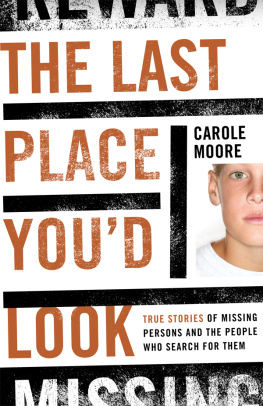
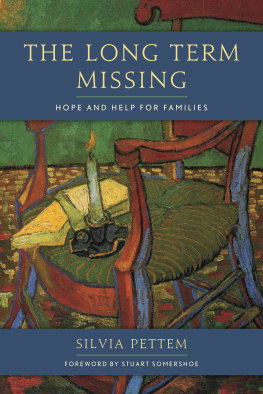
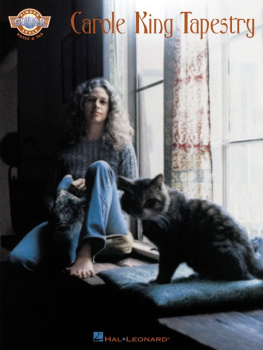

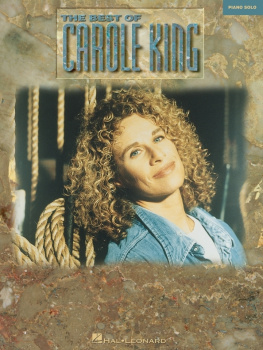
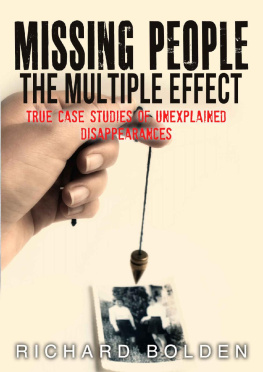
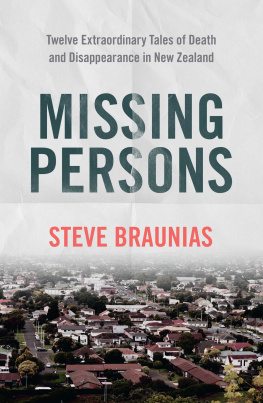

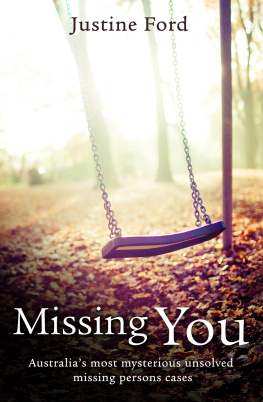
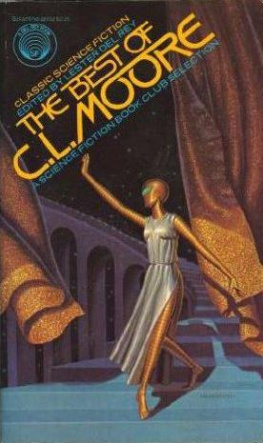
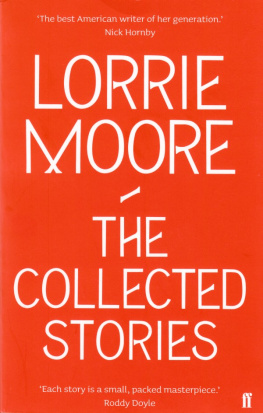
 The paper used in this publication meets the minimum requirements of American National Standard for Information SciencesPermanence of Paper for Printed Library Materials, ANSI/NISO Z39.48-1992.
The paper used in this publication meets the minimum requirements of American National Standard for Information SciencesPermanence of Paper for Printed Library Materials, ANSI/NISO Z39.48-1992.